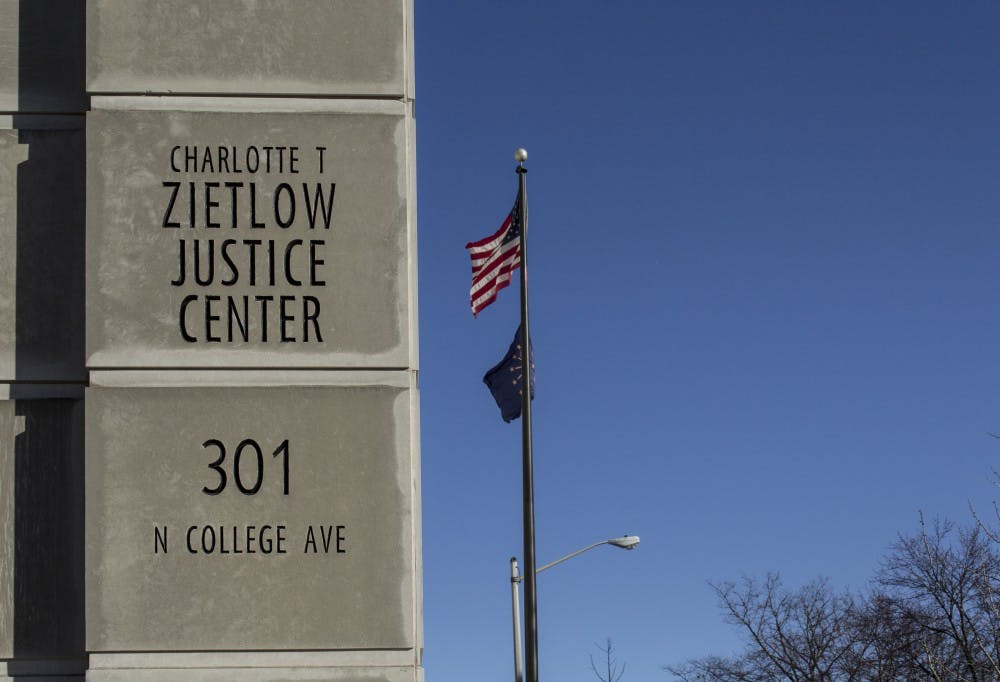This story was updated at 7:17 p.m. April 2.
The Monroe County courts have limited operations until at least April 13, but certain services required by law or those deemed emergencies are continuing.
The last day of the court’s normal operations was March 16. The decision to limit hearings and services was made to adhere to social distancing recommendations and help limit the spread of the coronavirus in Monroe County, First Deputy Prosecutor Jeff Kehr said. This decision means the general public is not allowed in the building, criminal and civil trials are postponed and other services are changing the way they operate.
Key changes
Initial hearings and bail hearings will continue.
Trials are postponed “for the foreseeable future.”
Traffic Court is closed, and any citations being given out now have dates after April 10.
Drug Treatment Court, Reentry Court, Mental Health Court and Veterans Court are still operating in limited capacity.
Situations such as filing protective orders for domestic violence and child custody or visitation emergencies will continue to be processed.
Kehr said initial hearings and bail hearings are still happening at the Charlotte Zietlow Justice Center, but family, friends and the general public are not allowed to attend. Only people essential to the hearing such as the judge, defendant, prosecutor, defense attorney, court reporter and guards are allowed in the room.
“We’re trying to minimize the number of people there to minimize the number of people potentially exposed,” he said.
Kehr said many trials are postponed for the foreseeable future. Traffic Court is also not taking place, and any traffic citations being given out now have dates past April 10, Kehr said. Other trials, such as criminal trials, scheduled during this time of limited operations are being postponed.
Defense attorney Katharine Liell said other emergency situations such as filing protective orders for domestic violence and child custody or visitation emergencies will continue to be processed.
Problem solving courts such as Drug Treatment Court and Reentry Court are still operating as much as they possibly can, said Steve Malone, Monroe County Problem Solving Court director.
The participants are still doing check-ins with their probation officers via Zoom, Skype, phone or whatever is most convenient for their situation.
Those involved in Drug Treatment Court would typically come to the courthouse to meet with Judge Mary Diekhoff. They also were required to meet with probation officers and do regular drug screening.
Diekhoff is meeting with participants face-to-face this week. She will see them one at a time while adhering to social distancing. Malone said Diekhoff wanted to do that because a strong relationship with the judge has been shown to make programs more successful.
Under the current circumstances, participants are still reporting to the Monroe County Community Corrections building and being drug tested. They are coming less often though because Malone said it is limited to about 20 people a day, who all come one at a time.
Malone said the Problem-solving courts team is encouraging participants to reach out to recovery sponsors and attend virtual self-help meetings being offered.
Liell said she has felt the effects of the courts' limited access. Her clients' trials that were scheduled during the limited operations now won’t happen until May. She said she has also been meeting with clients remotely.
With trials postponed, some of her clients will be in jail longer, but she said they have been understanding.
“My clients were more worried about their loved ones coming to court to testify for them than they were about their own well-being,” Liell said. “It’s really restored such a little tiny piece of humanity to my world.”




